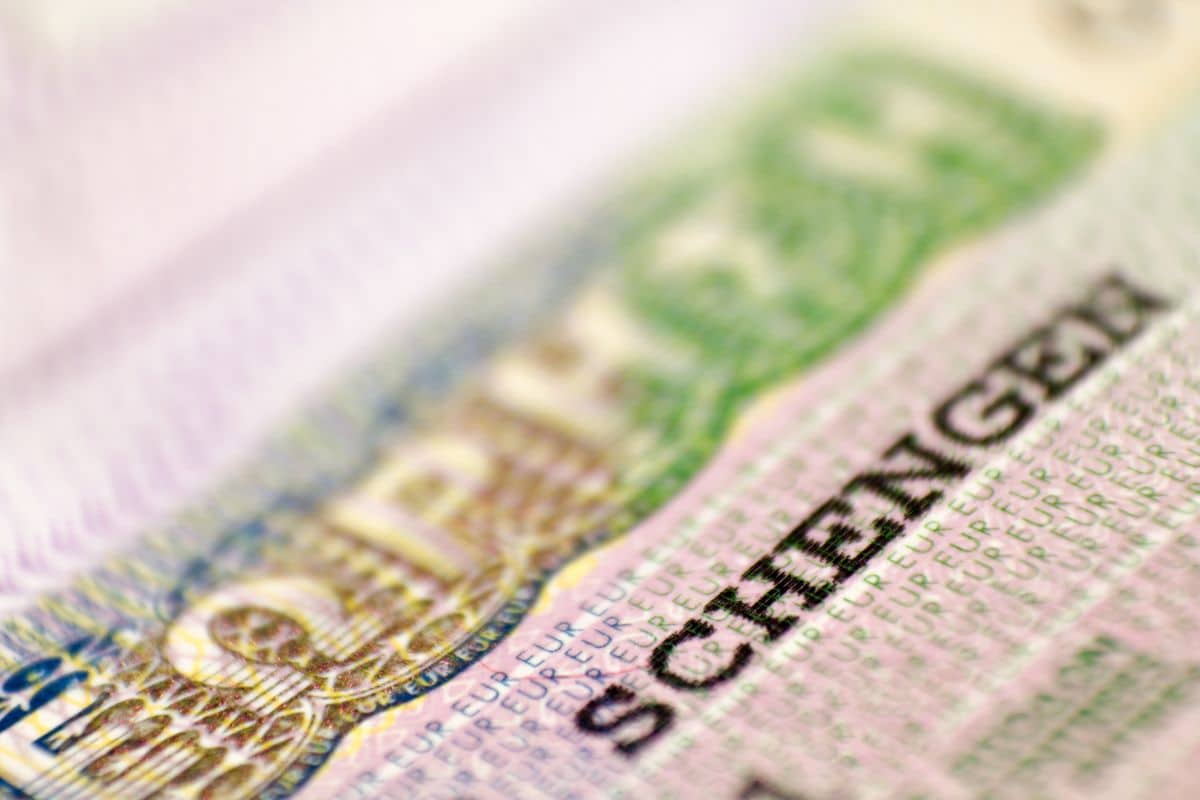The EU has announced new rules for Schengen visas and visitors to certain European countries.
New rules will see all applications for visit visas to Schengen area countries take place online, scrap visa stamps and mean travellers do not need to visit consulates before travelling to the region.
It will be a major change for applications from India, Saudi Arabia, Pakistan, Qatar, Philippines, Kuwait, Sri Lanka and almost 100 countries around the world.
EU announces major Schengen visa update
The European Council has now adopted the long-awaited new rules, which will allow people who plan to travel to the Schengen area to apply online for a visa.
The Schengen area is a zone of 27 European countries which have abolished many types of internal border controls.
Fernando Grande-Marlaska Gómez, acting Spanish minister for the interior, said: “The possibility of applying for a Schengen visa online will be a great improvement for citizens and for the processing of the application.
“It will simplify the application process for travellers and, at the same time, will ease the burden on national administrations, which will be able to respond more quickly and effectively.”
According to the EU, the two regulations will:
- Create an EU visa application platform
- Render in-person appearance at the consulate redundant
- Replace the current visa sticker with a cryptographically signed barcode
With a few exceptions, applications for Schengen visas will be made through that platform.
On the platform, visa applicants will be able to enter all the relevant data, upload electronic copies of their travel documents and supporting documents, and pay their visa fees.
In principle, in-person appearance will only be necessary for first-time applicants, people whose biometric data are no longer valid and people with a new travel document.
Following signature, the two regulations will be published in the Official Journal of the European Union and will enter into force on the twentieth day after publication.
The date of application of the new rules will be decided when technical work on the visa platform and the digital visa has been concluded.

Schengen area countries
- Austria
- Belgium
- Czech Republic
- Croatia
- Denmark
- Estonia
- Finland
- France
- Germany
- Greece
- Hungary
- Iceland
- Italy
- Latvia
- Liechtenstein
- Lithuania
- Luxembourg
- Malta
- Netherlands
- Norway
- Poland
- Portugal
- Slovakia
- Slovenia
- Spain
- Sweden
- Switzerland

Residents of these countries require a Schengen area visa to visit the countries in the region
- Afghanistan
- Algeria
- Angola
- Armenia
- Azerbaijan
- Bahrain
- Bangladesh
- Belarus
- Belize
- Benin
- Bhutan
- Bolivia
- Botswana
- Burkina Faso
- Burundi
- Cabo Verde
- Cambodia
- Cameroon
- Central African Republic
- Chad
- China
- Comoros
- Cote D’ivoire
- Cuba
- Dem. Rep. Of Congo
- Djibouti
- Dominican Republic
- Ecuador
- Egypt
- Equatorial Guinea
- Eritrea
- Eswatini
- Ethiopia
- Fiji
- Gabon
- Gambia
- Ghana
- Guinea-Bissau
- Guyana
- Haiti
- India
- Indonesia
- Iran
- Iraq
- Jamaica
- Jordan
- Kazakhstan
- Kenya
- Kosovo
- Kuwait
- Kyrgyzstan
- Laos
- Lebanon
- Lesotho
- Liberia
- Libya
- Madagascar
- Malawi
- Maldives
- Mali
- Mauritania
- Mongolia
- Morocco
- Mozambique
- Myanmar
- Namibia
- Nepal
- Niger
- Nigeria
- North Korea
- Northern Mariana Islands
- Oman
- Pakistan
- Palestine
- Papua New Guinea
- Philippines
- Qatar
- Republic of the Congo
- Russia
- Rwanda
- Saudi Arabia
- Senegal
- Sierra Leone
- Somalia
- South Africa
- South Sudan
- Sri Lanka
- Sudan
- Suriname
- Syria
- São Tomé and Príncipe
- Tajikistan
- Tanzania
- Thailand
- Togo
- Tonga
- Tunisia
- Turkmenistan
- Türkiye
- Uganda
- Uzbekistan
- Vanuatu
- Vietnam
- Yemen
- Zambia
- Zimbabwe






